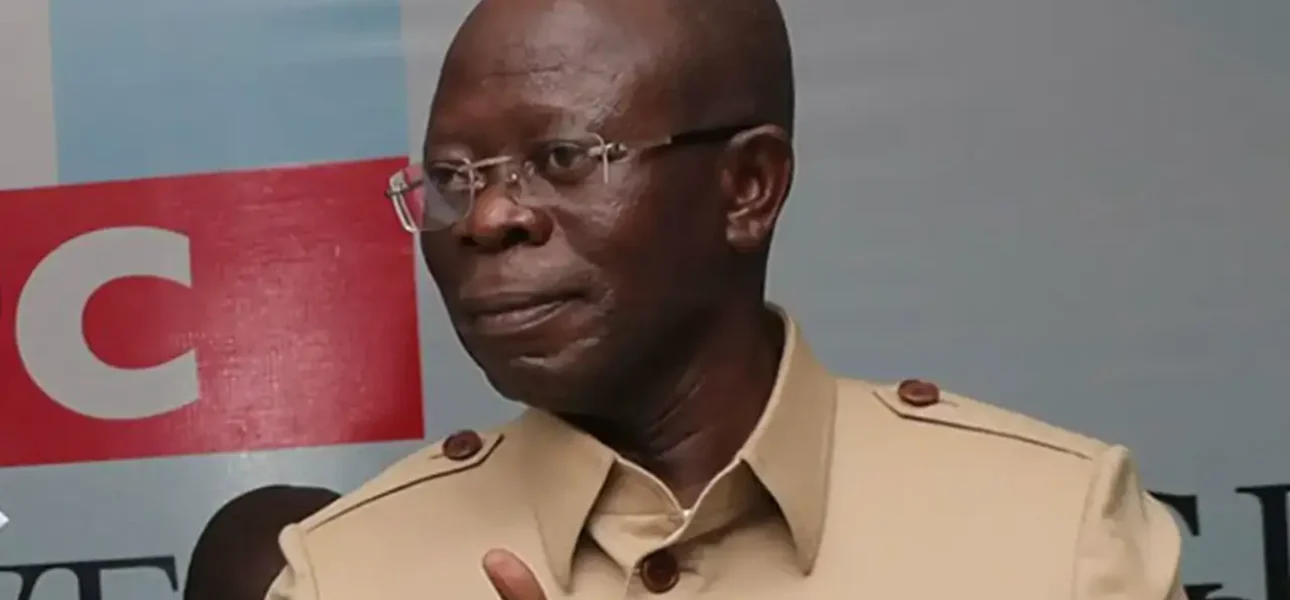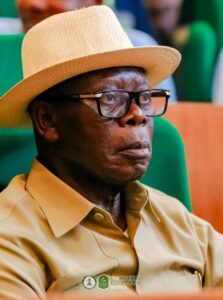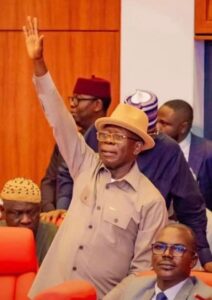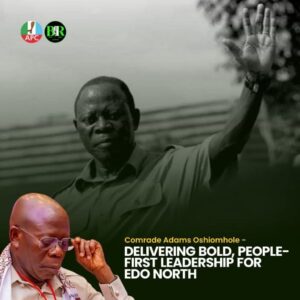As Nigeria continues its national budget defense process, one leader stands out for his unwavering commitment to transparency, accountability, and people-centered governance—Senator Adams Oshiomhole. In a time when the electorate increasingly demands integrity and results from those in public office, Senator Oshiomhole exemplifies what it means to be a true representative of the people.
Currently serving as the Chairman of the Senate Committee on Interior, and an active member of several other standing committees, Senator Oshiomhole has been deeply engaged in scrutinizing the budget proposals of government ministries, departments, and agencies. Far beyond fulfilling a procedural obligation, his role in the defense sessions has been marked by deliberate, rigorous questioning—reflecting the concerns of the average Nigerian and demanding accountability from public institutions.
Budget Defense: Championing Accountability in Governance
Senator Oshiomhole’s participation is not driven by mere presence or political decorum. Instead, he brings to the table a fierce dedication to ensuring that public funds are not only allocated but are justifiably utilized. His contributions emphasize the need for transparency, measurable impact, and responsible governance—qualities that remain the cornerstone of effective leadership.
Accountability must be seen as a shared responsibility across all levels of government. Leadership is not the exclusive domain of the presidency; rather, it stretches from federal and state offices down to local government councils. Every public office holder must be answerable to the people. This belief is central to Senator Oshiomhole’s philosophy, and it is what drives his constant push for better performance across the board.
Local Government Funds: A Call for Clarity
Consider the case of local government allocations in Edo State, where each chairman receives, on average, ₦384 million monthly, contributing to an annual disbursement of over ₦83 billion across 18 LGAs. The critical question Senator Oshiomhole encourages citizens to ask is simple yet powerful: What tangible development can we point to from these substantial allocations?
Imagine the transformation possible if these resources were deployed effectively—roads repaired, schools renovated, markets modernized, health centers equipped. And yet, the impact in many communities remains minimal. This is why citizen engagement and vigilance are essential, and why leaders like Senator Oshiomhole continue to emphasize the need for rigorous public scrutiny at every level of government.
Redefining Leadership Through Service
True leadership goes beyond holding office—it is measured by visible impact, community upliftment, and responsible stewardship of public trust. Senator Oshiomhole has consistently modeled these values throughout his political career. From the Senate floor to town hall meetings across Edo North, he continues to demonstrate that power must be used in service of the people, not for personal gain.
His advocacy during the budget process is not just about figures and line items; it’s about ensuring that government works for the people it serves. It’s about demanding results, exposing inefficiencies, and raising the standard for what elected officials must deliver.
A Legacy of Service, A Blueprint for Others
Senator Adams Oshiomhole’s work during this budget season is a reminder that Nigeria’s path to transformation lies in principled, accountable leadership. His approach challenges the status quo and encourages both public officials and citizens to take their roles seriously in the democratic process.
As the budget moves toward passage, Oshiomhole’s example should serve as a guidepost for all who hold or seek public office: Leadership is earned through action, validated by results, and sustained by the trust of the people.




